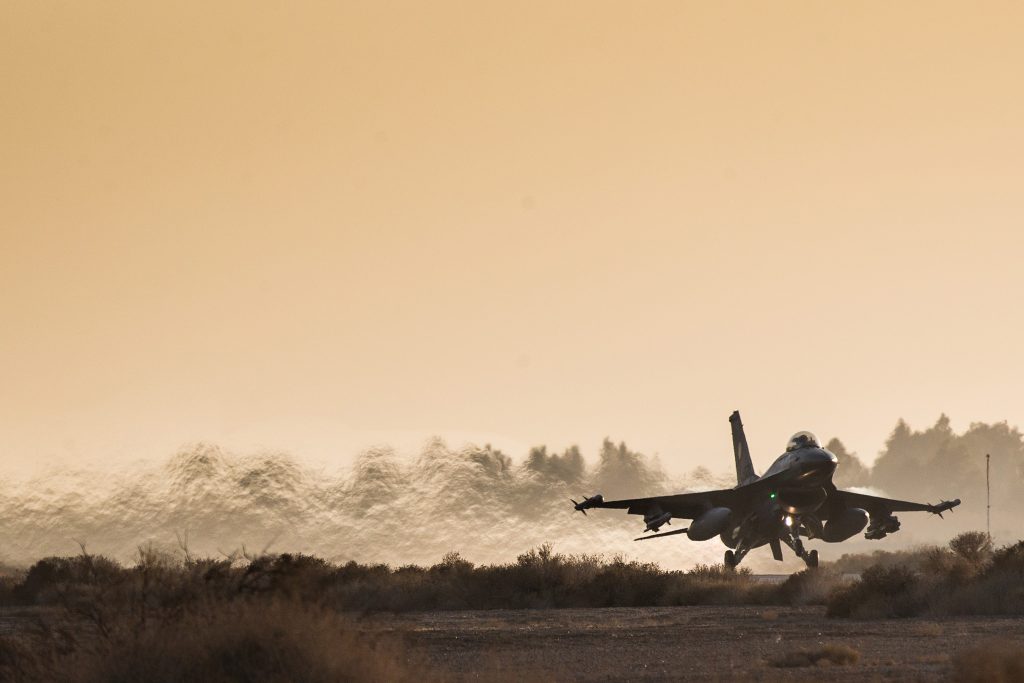Despite cross party calls for greater disclosure, the Defence Minister confirmed that no further details of four events will be released.

Despite concerns raised by MPs, the Netherlands Defence Minister confirmed during a recent parliamentary debate that the government still has no plans to disclose where or when in Iraq or Syria its airstrikes might have harmed civilians.
While the renewed Dutch air campaign against so-called Islamic State has seen improved transparency, all requests for information on the mission have so far been refused. On April 18th 2018, the Supreme Court of the Netherlands turned down a Freedom of Information request from RTL News for Internal Memoranda, which contained the locations and dates of Dutch strikes in Iraq. According to the Court, publishing this information could present a “danger to the security of the state” and might, in an ongoing mission, “harm the relations with other states and international organizations”.
This refusal to publish information on Dutch airstrikes was reiterated by Minister of Defence Ank Bijleveld during a June 27th debate in the Netherlands Parliament. Political interest has grown in civilian harm issues after The Netherlands officially conceded for the first time in April that its aircraft had caused civilian casualties in up to three incidents in Iraq.
The Defence Ministry has however refused to say where or when these events took place – or how many civilians were harmed. On June 27th, the issue was discussed in a general debate on current Dutch military missions. Despite the efforts of several MPs to push for more details of civilian harm events, the Ministry of Defence stuck to its initial decision not to disclose further information.
21 written questions on civilian harm
Prior to the debate, elected representatives posed 72 written questions on the general progress the Dutch anti-ISIS mission has made over the past year. Of these, 21 were questions specifically focused on civilian harm issues, and the lack of public transparency and accountability for Dutch strikes. Some of those questions drew on a recent parliamentary briefing provided by Airwars to MPs.
Specifically, MPs requested that Minister of Defence Ank Bijleveld make available more information about investigated incidents in which civilian casualties may have occurred, so that “independent investigation is possible”. One question specifically asked whether or not the Defence Ministry could rule out responsibility for a major civilian harm incident at Hawija in 2015 – a civilian casualty event which has already attracted private speculation among Dutch journalists as to whether Netherlands aircraft might have been responsible.
Although the Cabinet has stated that it “attaches importance to communicating as openly as possible,” it was it said not prepared to respond to requests for more information on any of the four cases assessed by the Public Prosecution Service, citing national and operational security.
Prepared for this often-repeated argument, MPs requested further explanations as to how more transparency about civilian casualties in Dutch operations might endanger Dutch troops or civilians domestically, as the government has claimed. Without going into further detail, the Defence Minister responded that the guiding principle of releasing information would always be “the safety of the individual pilot and the unit, but also the safety of their home front and of Dutch society and the Coalition as a whole.”
Following up on this lack of transparency – the worst among all 14 Coalition allies – Socialist Party MP Sadet Karabulut noted during the debate that “if that were the case, the United Kingdom and Australia would also not publish the locations. This information is made public because it is also in the interest of our military.” The Minister in turn answered that “Each country of the Coalition makes its own decisions.”
“That’s just how we do it”
Salima Belhaj, MP for the social-liberal D66 which is a part of the governing coalition, reminded the minister of her own party’s successful cross-party motion which calls for more detailed reporting on Dutch weapon deployments. “Wouldn’t you find it interesting if the Cabinet would publish the locations and dates?” she asked the Minister. Karabulut added that her party wholeheartedly supported this request for more transparency, stating that “SP and D66 have throughout the years always jointly pushed for this.”
“We cannot report more than we do at the moment”, Minister Bijleveld responded. “You stated that our weekly updates on Wednesday are a step in the right direction. They are. But we will not do more than that because in the end the safety of the state always stands at first place.”
Karabulut in turn stressed that there is in fact a direct strategic incentive for the disclosure of airstrike data. “Because specific information on three incidents is not made public, the Netherlands can possibly be connected to hundreds of possible civilian casualty incidents.”
When Karabulut asked if the Minister did not want to rule out possible responsibility for these incidents, she replied that the Public Prosecution Service had concluded that there was no question of criminal offences in the four assessed Dutch strikes. “Because that is what it really is about”, she stated. “That is the method we use in the Netherlands and it is different from other countries, but that’s just how we do it”.
However, according to Airwars director Chris Woods, such a narrow legalistic approach to civilian harm is insufficient: “With most reported battlefield casualties in the Coalition’s war against ISIS likely occurring within the framework of International Humanitarian Law (IHL), we urge the Defence Ministry to tackle the broader issue of mitigating civilian harm from all actions. That means properly understanding where and when casualties occur – including those strikes which do not breach IHL.”